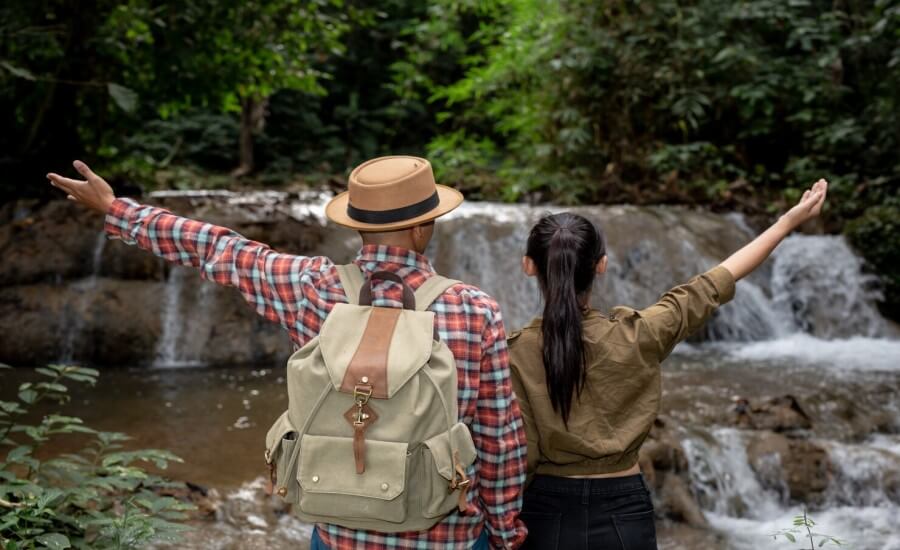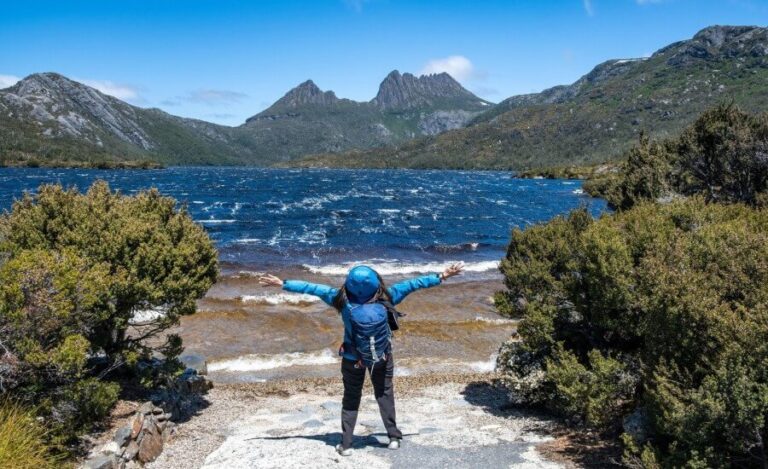
The world beckons, and the desire to explore is a powerful human impulse. Yet, as we venture out, it’s becoming increasingly clear that our planet needs us to tread a little lighter. The conversation around sustainable travel experiences isn’t just a trend; it’s a vital shift in how we interact with the world around us. It’s about acknowledging that our adventures have a footprint, and choosing to make it a beneficial one. This is your guide to understanding why sustainable travel matters now, and how you can embark on journeys that enrich both your life and the destinations you visit.
Why Sustainable Travel Matters Now
The planet is changing, and travel needs to evolve with it. We’re witnessing the impact of climate change, the strain on fragile ecosystems, and the importance of preserving cultural heritage. This is where the concept of sustainable travel steps in, offering a framework for us to explore with purpose. It’s about making conscious choices that help, not harm, the places we visit. Instead of simply being a tourist, you can become a traveler who contributes positively, leaving destinations better than you found them. This approach fosters deeper connections, more authentic experiences, and a sense of fulfillment that goes beyond the typical vacation snapshot.
What is Sustainable Travel?
At its heart, sustainable travel is about responsible tourism. It’s more than just “going green”; it’s a holistic approach that considers the long-term well-being of a place and its people. It involves making thoughtful decisions that minimize negative impacts and maximize positive contributions.
Defining the Core Concepts:
- Environmental Responsibility: This pillar focuses on reducing your ecological footprint. It means being mindful of resource consumption, waste production, and your impact on biodiversity.
- Social Responsibility: This aspect emphasizes respecting and honoring local cultures, traditions, and communities. It’s about engaging with locals in a way that is respectful and mutually beneficial.
- Economic Responsibility: This involves ensuring that your travel spending benefits the local economy directly. It means supporting local businesses, artisans, and community-led initiatives.
Essentially, sustainable travel is about finding a balance between enjoying the world and ensuring its preservation for future generations. It’s about making good choices for the environment, respecting local cultures and communities, and supporting local economies.
Choosing Eco-Conscious Destinations for Meaningful Travel
The first step in embarking on a sustainable journey is selecting a destination that aligns with these principles. Not all places are created equal when it comes to environmental stewardship and community support.
Researching Green Destinations:
When planning, look for places that are actively committed to conservation and have protected natural areas. Many destinations are making significant efforts to reduce their environmental impact and promote responsible tourism.
- Look for certifications: Certifications like Green Globe, LEED, or EarthCheck indicate that accommodations and destinations adhere to high environmental and social standards.
- Investigate conservation efforts: Are there national parks, protected marine areas, or rewilding projects in place? Destinations with a strong focus on conservation are often more sustainable.
- Consider community involvement: Do local communities have a significant say and benefit from tourism initiatives? Destinations that prioritize local participation often offer more authentic and sustainable experiences.
Case Study: Costa Rica’s Ecotourism Model
Costa Rica stands as a shining example of successful ecotourism. This Central American nation has prioritized environmental protection, with over 25% of its landmass dedicated to national parks and protected reserves. Ecotourism has become a major income source, directly benefiting local communities through employment and support for small businesses. Visitors can immerse themselves in vibrant biodiversity while knowing their presence supports conservation efforts. From canopy tours in the rainforest to exploring volcanic landscapes, Costa Rica offers a wealth of sustainable travel experiences that emphasize nature and local culture.
Eco-conscious Accommodation: Your Sustainable Stay
Where you choose to rest your head can significantly impact your environmental footprint. Thankfully, there’s a growing array of accommodations committed to sustainability.
Types of Sustainable Stays:
- Eco-lodges: These often run on renewable energy sources, utilize sustainable building materials, and have robust waste management and recycling programs. Many are set in natural environments, offering a close connection to nature.
- Green Hotels: Many hotels are implementing water-saving practices, energy-efficient systems, and sourcing food locally. They might also have programs that support local employment and community development.
- Homestays and Community Guesthouses: Opting for homestays or guesthouses run by local families provides a direct economic benefit to the community. These are fantastic opportunities for local living travel experiences, offering authentic insights into daily life.
Expert Insight: What to Look For
“When seeking sustainable accommodation, look beyond the eco-label,” advises Dr. Anya Sharma, a specialist in sustainable tourism. “Seek out places that source food locally, as this reduces transportation emissions and supports regional farmers. Crucially, check their waste management and recycling programs. Do they minimize single-use plastics? Do they have water conservation measures in place? And importantly, look for hotels that actively employ and upskill local staff; this is a key indicator of social sustainability.”
Responsible Activities and Experiences: Minimizing Your Impact
Once you’ve arrived, your choices regarding activities can further enhance your sustainable travel approach. It’s about engaging with the destination in a way that respects its natural and cultural integrity.
Minimizing Your Impact:
- Choose sustainable transport: Whenever possible, opt for walking, biking, or utilizing public transportation within your destination. This not only reduces emissions but often allows for a more intimate exploration of the area.
- Say no to single-use plastics: Carry a reusable water bottle, a reusable coffee cup, and reusable shopping bags. Refuse plastic straws and cutlery. Small actions can collectively make a significant difference.
- Respect wildlife: Admire animals from a distance and never feed wild animals. Feeding them can disrupt their natural behaviors, diet, and even spread diseases.
- Conserve resources: Be mindful of your water and energy usage in your accommodation. Turn off lights and air conditioning when you leave the room, and reuse towels.
Supporting Local Communities:
Engaging with and supporting local communities is a cornerstone of meaningful travel.
- Buy souvenirs directly from artisans: This ensures that your money goes directly to the creators and helps preserve traditional crafts.
- Eat at local restaurants: Seek out eateries that serve regional cuisine and source their ingredients locally. This supports local farmers and keeps culinary traditions alive.
- Participate in community-based tours: These tours are often led by local guides who share their deep knowledge and connection to the land and culture. They offer a unique perspective and ensure that tourism revenue directly benefits the community.
Real-World Example: Community Tourism in Peru
In Peru, many indigenous communities have developed innovative tourism models. Villages offer guided treks, cultural workshops, and homestays led by their residents. This approach ensures that income generated from tourism goes directly to families, supporting education, healthcare, and community development projects. Visitors gain an authentic understanding of traditional Andean life, learn ancient weaving techniques, and share meals with local families, creating truly meaningful travel experiences.
Packing for a Greener Trip: Essential Eco-Friendly Items
Packing smart is also about packing sustainably. By choosing the right items, you can significantly reduce waste and your environmental impact while on the road.
Essential Eco-friendly Items:
Reusable water bottle and coffee cup: Essential for reducing plastic waste.
- Solid toiletries: Plastic bottles are no longer necessary thanks to shampoo bars, conditioner bars, and solid soap bars.
- Reef-safe sunscreen: If you’re visiting coastal areas, choose sunscreens that don’t contain chemicals harmful to coral reefs.
- Reusable shopping bags: For market purchases or souvenirs.
- Cloth napkin: A small but effective way to avoid paper napkins.
- Reusable cutlery set: For picnics or meals on the go.
Reducing Waste on the Go:
Beyond what you pack, be mindful of waste reduction during your trip. Choose digital documents over printouts whenever possible. When you do need to print, opt for recycled paper and print double-sided. Be conscious of packaging and try to buy items with minimal or recyclable packaging.
Wrapping Up: Travel with a Positive Impact
Sustainable travel isn’t about deprivation; it’s about enrichment. It’s about choosing experiences that connect you more deeply with the world, its people, and its natural beauty. By making conscious choices – from selecting your destination and accommodation to engaging in activities and packing mindfully – you contribute to a more responsible and equitable travel industry.
Sustainable travel is accessible to everyone, and even small choices can make a big difference. Embrace the opportunity to explore the world, leaving it better than you found it.
Ready to plan your next impactful adventure? Explore our guide to eco-friendly destinations or discover tips for finding authentic local living travel experiences on our blog!






